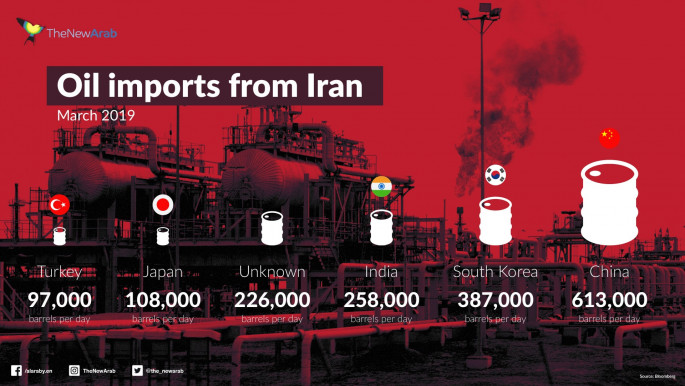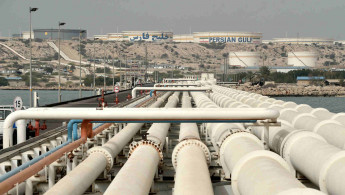Iran's oil sector on 'full alert' against cyber, physical attacks
Iran's oil minister on Sunday ordered his country's energy sector to be on high alert to the threat of "physical and cyber" attacks.
Bijan Namdar Zanganeh said "it is necessary for all companies and installations of the oil industry to be on full alert against physical and cyber threats," in a statement published on the oil ministry's Shana website.
Iran denied press reports on September 21 that its oil installations were disrupted by a cyber attack but Zanganeh said on Sunday precautions were needed due to American sanctions and the "full-scale economic war" that the Islamic republic accuses the United States of waging against it.
Washington, Riyadh, Berlin, London and Paris blame Iran for attacks that damaged the Saudi oil sector on September 14 and forced the world's largest crude exporter to sharply reduce production.
Tehran denied any link to the strikes, which were claimed by Houthi rebels in Yemen. Iran supports the rebels against a Saudi-led coalition that has been fighting the Houthis since 2015.
Following the attacks, US President Donald Trump said he was preparing a response. Several days later he endorsed military restraint, signalling his preference for intensifying a "maximum pressure" campaign through economic sanctions.
On Thursday, the Pentagon said it would send one Patriot missile battery and four radar systems to Saudi Arabia in a fresh troop deployment after the kingdom's air defences were breached in the attack.
The deployment will involve about 200 troops.
Two more Patriot batteries and a THAAD missile defence system will be prepared to go later if needed, authorities said.
The US has also implemented additional sanctions on Tehran in the wake of the attacks.
It came a week after the US announced it would deploy further troops and air defences to Saudi Arabia and the United Arab Emirates in the Trump administration's first move to protect the kingdom from further attacks blamed on Iran.
The four Sentinel radar systems and the Patriot battery are designed to provide better surveillance across northern Saudi Arabia.
The kingdom's air defences have until now been focused on the south to protect the country from attacks by the Iran-backed Houthi rebels in Yemen.
On Saturday, Yemen's Houthi movement said it carried out an attack near the border with the southwestern Saudi region of Najran.
Thousands of Saudi troops were allegedly captured in the attack, reports claimed.
The “enemy soldiers” were captured in the attack that was supported by the movement’s drone, missile and air defence units, a statement by the rebels said.
A spokesman for the Yemen-based rebels said in a statement that three "enemy military brigades had fallen" in the attack, Reuters news agency reported on Saturday.
Meanwhile, the rebels’s Al Masirah TV said the Houthis had captured "thousands" of enemy troops, including many officers and soldiers of the Saudi army, as well as "hundreds of armoured vehicles".
The attack and numbers provided by the rebel media could not be immediately verified, however the Houthis have recently upped attacks against neighbouring Saudi Arabia.
Follow us on Twitter: @The_NewArab





 Follow the Middle East's top stories in English at The New Arab on Google News
Follow the Middle East's top stories in English at The New Arab on Google News

![Israeli forces ordered bombed Gaza's Jabalia, ordering residents to leave [Getty]](/sites/default/files/styles/image_330x185/public/2176418030.jpeg?h=a5f2f23a&itok=_YGZaP1z)
